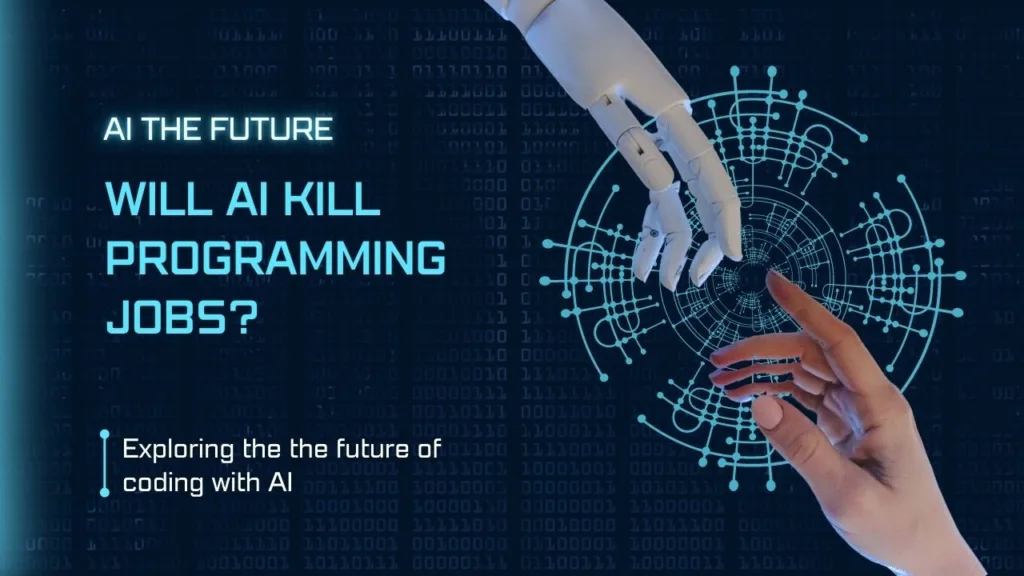Artificial Intelligence (AI) has been making significant strides in various industries, transforming the way we work and live. As this technology continues to evolve, concerns have emerged about its potential impact on job markets.
One of the fields that has garnered attention is programming. The question arises: Will AI kill programming jobs? In this article, we will delve into this topic and explore the complex relationship between AI and programming jobs, discussing both the potential challenges and opportunities that lie ahead.
The future of coding with AI
The future of coding with AI holds great promise and potential, as artificial intelligence continues to evolve and integrate into various aspects of software development. AI is poised to revolutionize how code is created, optimized, and maintained, leading to more efficient, creative, and impactful software solutions.
Here are some key aspects of the future of coding with AI:
1. Automated Code Generation:
AI-powered tools can automate the process of generating code snippets, modules, and even entire programs based on high-level descriptions or requirements provided by developers. This can significantly speed up development, especially for routine and repetitive tasks.
2. Code Optimization:
AI algorithms can analyze code to identify performance bottlenecks, suggest optimizations, and automatically refactor code to make it more efficient. This leads to faster and more optimized software without extensive manual intervention.
3. Debugging and Troubleshooting:
AI can assist in debugging by identifying and highlighting potential issues in code. It can analyze error patterns, suggest fixes, and even predict potential future errors based on historical data.
4. Natural Language Interfaces:
Developers might interact with coding environments using natural language, making it easier for those without extensive programming knowledge to create applications. AI can translate human language descriptions into functional code.
5. Collaborative Coding:
AI can facilitate collaborative coding by suggesting compatible code changes, merging code from different developers, and resolving conflicts in version control systems.
6. Context-Aware Assistance:
AI tools can provide context-aware suggestions while coding, such as offering relevant code snippets, documentation, and best practices based on the current task and the developer’s coding style.
7. Rapid Prototyping:
Developers can use AI-generated code prototypes to quickly test ideas and concepts before investing significant time in manual coding.
8. Domain-Specific Assistance:
AI can provide specialized assistance in various domains, such as web development, data science, and machine learning, by offering code templates, libraries, and tailored solutions.
9. Automated Testing:
AI can automate the testing process by generating test cases, identifying edge cases, and predicting potential failure scenarios, leading to more robust and reliable software.
10. Customization and Personalization:
AI tools can learn from a developer’s coding patterns and preferences, providing personalized suggestions and automations that align with their coding style.
11. Continuous Learning:
AI can monitor trends, new libraries, and emerging technologies to provide programmers with updates and suggestions for staying up-to-date with the latest developments in the field.
12. Ethical and Security Considerations:
AI can assist in identifying potential security vulnerabilities and ethical concerns in code, helping developers create safer and more responsible software.
In essence, the future of coding with AI is about collaboration between human programmers and intelligent tools. AI will handle routine and time-consuming tasks, enabling developers to focus on higher-level design, innovation, and solving complex problems. However, the role of programmers will remain crucial in guiding AI, ensuring ethical standards are met, and bringing a human touch to the software development process. As AI tools continue to evolve, they will complement and enhance the capabilities of programmers, leading to a more efficient, creative, and dynamic coding environment.
Will programmers be needed in the future?


